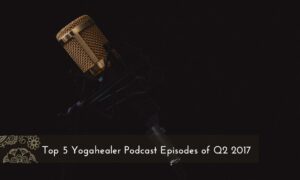John Dupuy wrote THE book on Integral Recovery.
I wanted to talk to him because in my Ayurveda practice I’ve seen my fair share of  addiction. In my practice addiction doesn’t usually show up as a falling down drunk. Although, come to think of it, I have had show up on my Ayurveda Yurt doorstep. In my practice addiction doesn’t usually show up a recovering crystal meth addict. Although, at least 5 past clients come to mind.
addiction. In my practice addiction doesn’t usually show up as a falling down drunk. Although, come to think of it, I have had show up on my Ayurveda Yurt doorstep. In my practice addiction doesn’t usually show up a recovering crystal meth addict. Although, at least 5 past clients come to mind.
What addiction shows up in my Ayurvedic Medicine practice is usually more subtle. I see women in their 50’s who want the benefits of a deep meditation practice, but can’t give up their evening wine to get down to the deeper work. I see ski bums in their 20’s and 30’s who are addicted to pot and want to get clarity on their purpose… but they’re living in a smoke screen.
I see the yogidetoxers, who have daily habits, routines, rituals and self-care practices that are stratospheres ahead of the mainstream culture they live in leaning into their next level of freedom from subtle addictions like caffeine, theobromine, sugar, and workaholism.
Why I wanted to interview John Dupuy is that he wrote the book on multi-level, multi-line approach to Integral Wellness. He has worked on the front lines of hardcore addiction for a few decades. He gets Integral Theory. He gets that we need a mind-body-spirit-relational-community approach to recovery if we truly want to be free personally, and if we truly want to help those in our lives who are physically addicted to a substance that destroys the human body.
Listen to the interview. It’s so humane. Read the book – especially if you are a Wellness Professional.
About John Dupuy:
John has worked in many of the nation’s top therapeutic wilderness programs and helped found Passages to Recovery and Open Sky Wilderness Therapy. John is the founder of Integral Recovery and has published various articles on the subject. He is an adjunct professor at JFK University, teaching Basic Addiction Studies, and travels nationally and internationally to teach and inspire on the subject of Integral Recovery.
John is an avid meditator and a fitness enthusiast. (John actually does the practices he recommends.)
John also is a founder of iAwake Technologies/the Profound Meditation Program. John is a pioneer in using brain entrainment technology clinically for the treatment of addiction, depression, and other mental disorders.
About Integral Recovery
At the core of Integral Recovery is Integral Recovery Practice, a sophisticated system of personal development that is specifically designed for those in recovery, which engages body, mind, heart, and spirit to produce extraordinary health and awakening on all levels of our being. Also central to Integral Recovery is the AQAL map, a conceptual framework that helps illuminate the disease of addiction—and the journey of recovery—in comprehensive and compassionate terms.
Passages from the Interview
‘My first thought was, “I must find the people who are already working on this Integral Recovery thing.” I spent a couple of months getting deeper into Ken’s work and trying to find the Integral Recovery people. Little by little it began to dawn on me that there weren’t any others—that I was probably it, for the moment. This was a sobering realization, and I began to study harder and apply myself with true intensity and focus. I had a strong inner conviction that what I was learning would be important down the road.
Since AQAL is not just a cognitive tool but a very practical guide for self-transformation, I threw myself into a daily Integral Life Practice (ILP) as delineated by Ken and the folks at Integral Institute. ILP is a whole-being transformational practice designed to magnify health, vitality, and higher awareness in body, mind, soul, and emotions. I had worked out for years and led a rather robust life as a wilderness guide; I had also practiced meditation over the years. But nothing prepared me for the changes a dedicated ILP would produce in me.”
” If we use the AQAL map to consider the commitment we must make to get sober, we can quickly see that all four quadrants of our life are infected: physical health, interior health, relational health, ethical health, and our ability to function in the world in a meaningful way. We begin to understand the devolution of our moral development brought about by the disease, with its incessant and overpowering cravings for drugs and or alcohol. We see how our essential human intelligences have been retarded and dragged down by the all-encompassing nature of the disease.
My Favorite Quotes from Integral Recovery
From the chapter Practice and the Path to Mastery:
“This is so important: falling in love the the mundane and undramatic parts of our daily practice and not becoming attached to the spectacular and the dramatic. In other words, we have to be comfortable with the highs the lows, and the plateaus.”
“Live practice, do practice be practice. Build friendships and communities and relationships with other practitioners that will support your practice and inspire you with continued growth. When I speak to my friends over the phone, my first question is always, “Hows your practice?” That gets the ball rolling.”
“It is a simple moral imperative: to live well, we must serve; to serve well, we must practice.”

